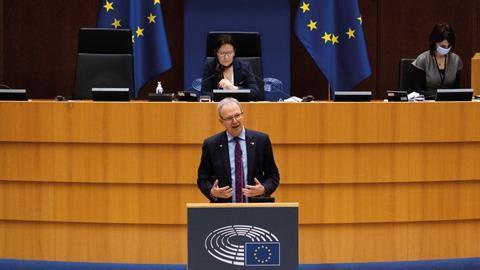The EU is clamping down on what it sees as the worst elements of litigation funding, but UK funders say that those pushing for more regulation have failed to understand how the market works
Litigation funders look set to fight any attempt by UK legislators to mirror a newly announced clampdown on the sector across the EU.
Brussels is planning to curb what it sees as the worst elements of litigation funding, with recommendations for a new system of regulation and a potential cap on fees that can be made on cases.
Other proposals include financial adequacy requirements and an obligation to pay adverse costs, and mandatory disclosure of any litigation funding agreement to all parties and the court.
In the Voss report published over the summer, it was concluded that ‘soft’ law approaches such as those taken in the UK – where regulation is voluntary and self-policed – have not proved effective in properly managing the sector.
But there is a sense in the litigation funding market that legislators pushing for more regulation have failed to understand how it operates. The industry has pointed to the unwinding of similar proposals that were made to regulate the industry in Australia.
Gary Barnett, executive director of the International Legal Finance Association, said: ‘The UK’s self-regulatory regime through the Association of Litigation Funders is considered successful by the Voss report and our view is that any regulatory regime under consideration in the EU should emulate the ALF. Further, it is important that the EU considers and reflects on the potential and unintended consequences of going beyond ALF’s code of conduct. Doing so could limit the availability and increase the cost of funding, which provides access to justice and upholds the rule of law.’
Susan Dunn, founder of Harbour Litigation, drew attention to the risks funders take and that the funder, like the client, relies on those running the case with regard to value, cost, duration and likelihood of success. She added: ‘Much goes wrong, even in the apparently best cases. Many cases take years to resolve, come in below asserted claim values and far in excess of the predicted budget at the outset. Without funding, significant swathes of cases would not be viable.’
'It is important that the EU considers and reflects on the potential and unintended consequences of going beyond ALF’s code of conduct. Doing so could limit the availability and increase the cost of funding, which provides access to justice and upholds the rule of law'
Gary Barnett, International Legal Finance Association
The European Parliament has approved the report, penned by German MEP Axel Voss. It is concerned that jurisdictions on the continent will experience the same problems as in Australia, the US or the UK – what the report describes as ‘actors seeking profit maximisation at the expense of claimants’.
Voss said: ‘Only strong legal safeguards combined with sound knowledge of the use of [third-party litigation funding] will prevent us from scenarios that occurred in other parts of the world. The EU should use this matter to demonstrate to its citizens that the European institutions are not only able to find solutions after a crisis has done already severe damage but that they can also act pre-emptively, at an early stage to stop the further erosion of our justice system and to guarantee adequate compensation and protection for our citizens.’
Supporters of litigation funding argue that it improves access to justice and discourages wrongdoing by defendants. They say that it serves as a vehicle for the pursuit of low-value claims which would not be pursued otherwise and stops defendants from defeating cases through superior economic power.
These arguments are acknowledged by the report, but it suggests they are not borne out by experience. Instead, third-party litigation funding is a ‘profit-making enterprise, in which justice for the claimant may or may not be a by-product’.
In Europe, the report states, rates of return for litigation funders may be up to 300%, and there are various examples of funders taking control of litigation to push for a settlement to increase their returns, irrespective of the fairness of the financial outcome for the claimant.
‘In such cases, a losing defendant effectively transfers wealth to an unharmed investor, while claimants who have suffered harm risk receiving little or no redress.’
The EU initiative contrasts sharply with the situation in the UK, where the litigation funding industry has been allowed to grow with few constraints from legislators. As the Voss report points out, the only self-regulatory code in Europe is that of the Association of Litigation Funders – but just 12 of the 80 litigation funders operating across the continent are members.
This article is now closed for comment.




































4 Readers' comments